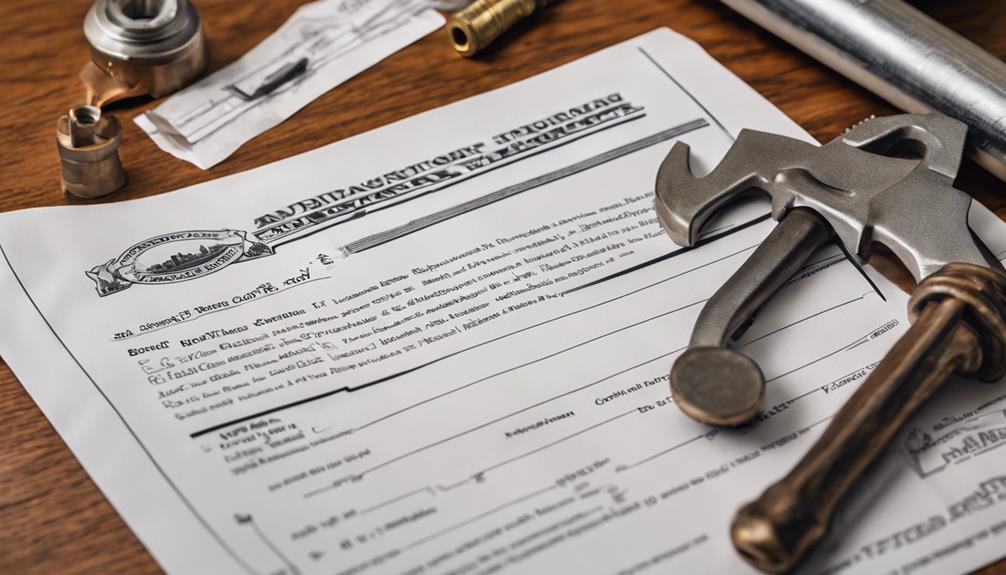If you're considering entering the precious metals market in Norfolk, VA, understanding the importance of a Precious Metals Dealer Bond is crucial. This bond not only safeguards consumers but also reinforces your credibility as a dealer. You might wonder how it impacts your operations and the legal requirements you must meet. As you navigate these regulations, you'll find that the benefits extend far beyond compliance, influencing your reputation and customer trust. So, what are the specifics you need to know to ensure you're fully prepared?
What Is a Precious Metals Dealer Bond?

A Precious Metals Dealer Bond is a type of surety bond that ensures compliance with state regulations for businesses dealing in precious metals like gold, silver, and platinum. This bond protects consumers by guaranteeing that you'll adhere to the laws governing your operations. If you fail to meet these obligations, the bond can provide financial compensation to affected parties.
When you apply for this bond, you're essentially vouching for your ethical practices and commitment to lawful conduct. It's not just a piece of paper; it's a financial safety net for your customers and a testament to your credibility in the industry.
To obtain a Precious Metals Dealer Bond, you'll typically need to undergo a background check and submit financial statements, as surety companies want to ensure that you're a trustworthy business owner.
Moreover, having this bond can enhance your reputation in the marketplace, making you more appealing to potential clients. By securing the bond, you're not only safeguarding your business but also showing your dedication to maintaining transparency and integrity in your dealings.
Importance of Precious Metals Dealer Bond
While operating in the precious metals industry, having a Precious Metals Dealer Bond is crucial for protecting both your business and your customers. This bond acts as a safety net, ensuring that you adhere to state regulations and ethical practices. Without it, you risk legal complications that could jeopardize your operations.
By securing this bond, you demonstrate your commitment to transparency and trustworthiness in your transactions. It reassures your customers that they're dealing with a legitimate business that values their investments. In turn, this builds a strong reputation within the community, attracting more clients and fostering long-term relationships.
Moreover, a Precious Metals Dealer Bond can help you mitigate potential financial losses. If a dispute arises, your customers have a way to seek compensation through the bond, which protects your assets while also enhancing customer confidence. Notably, having a bond can enhance consumer trust among potential clients, as it signals compliance with industry regulations.
In a competitive market, having this bond sets you apart from dealers who may not be as scrupulous. It's not just about compliance; it's about establishing yourself as a reliable dealer who prioritizes the interests of your customers.
Ultimately, the bond is an essential investment in the sustainability and integrity of your business.
Legal Requirements in Norfolk

Operating as a precious metals dealer in Norfolk comes with specific legal requirements that you must adhere to in order to maintain compliance and safeguard your business.
First and foremost, you need to register your business with the Virginia State Corporation Commission. This registration will ensure that your business operates legally within the state.
Additionally, you must obtain a precious metals dealer license from the city of Norfolk. This license entails submitting an application, paying the required fees, and passing a background check.
You'll also need to comply with the federal regulations set forth by the Bureau of Alcohol, Tobacco, Firearms and Explosives (ATF) if you deal with certain categories of metals.
It's crucial to maintain accurate records of all transactions, including the names and addresses of sellers, as well as detailed descriptions of the items bought and sold.
Regular reporting to local authorities may also be required, so staying on top of these obligations is vital.
Lastly, ensure you have a comprehensive understanding of any local ordinances that may affect your operations.
How to Obtain a Dealer Bond
To obtain a dealer bond, you'll need to follow a structured process that ensures compliance with legal requirements.
First, gather the necessary documentation, including your business license, identification, and any financial statements that demonstrate your creditworthiness.
Once you've got these documents ready, it's time to approach a surety bond company or an insurance agent who specializes in dealer bonds.
Next, fill out the application form provided by the surety bond company. This form will typically ask for details about your business, your financial history, and any previous experience in dealing with precious metals.
After submitting your application, the surety will assess your risk profile, which may involve a credit check and other evaluations.
Once approved, you'll receive a quote for the bond amount and the premium.
If everything looks good, you'll need to sign the bond agreement.
Finally, pay the required premium to activate your bond.
After completing these steps, you'll have your dealer bond in hand, allowing you to operate legally as a precious metals dealer in Norfolk. Additionally, understanding the bond requirements is crucial for maintaining market credibility.
Make sure to keep your bond updated and renew it as needed to stay compliant.
Costs Associated With the Bond

After securing your dealer bond, it's important to understand the costs associated with maintaining it. The primary expense you'll face is the premium, which is usually a percentage of the total bond amount. This percentage can vary based on factors like your credit score, financial history, and the bonding company's policies.
Typically, you might pay anywhere from 1% to 15% of the bond amount annually. If your credit score is strong, you'll likely secure a lower premium. Conversely, a lower credit score may result in higher costs.
Additionally, you should consider any renewal fees. Most bonds require annual renewals, and the costs may change from year to year based on your risk profile.
Don't forget about potential additional fees, such as those for paperwork processing or modifications to your bond. It's crucial to read the fine print and understand any hidden costs that could arise.
Lastly, budgeting for unforeseen circumstances is wise. Having a financial cushion can help you manage any unexpected expenses related to your bond. Understanding used car dealer bonds ensures you are fully aware of the financial obligations required for compliance.
Ultimately, understanding these costs will help you maintain compliance and ensure your business runs smoothly.
Benefits for Dealers and Consumers
Many dealers and consumers benefit significantly from the security and trust that a Norfolk precious metals dealer bond provides. For dealers, having this bond establishes credibility in the market, which attracts more customers. When you're bonded, clients feel more confident in your business practices, knowing they've a financial safety net should issues arise. This trust can lead to increased sales and long-term customer relationships.
For consumers, the bond offers protection against fraud or malpractice. If you purchase precious metals from a bonded dealer and something goes wrong—like a misrepresentation of the product or non-delivery—you have the right to seek compensation. This assurance empowers you to make purchases with peace of mind, knowing you're safeguarded against potential losses.
Additionally, the bond may encourage dealers to maintain higher ethical standards, knowing they're accountable for their actions. This creates a more transparent marketplace, benefiting everyone involved.
In essence, both dealers and consumers enjoy a more secure, trustworthy environment, fostering healthy business practices and relationships. Having a Norfolk precious metals dealer bond isn't just a regulatory requirement; it's a valuable asset for everyone in the precious metals trade.
Consequences of Not Having a Bond

Operating without a Norfolk precious metals dealer bond can lead to significant repercussions for your business.
First and foremost, you risk facing legal penalties. The city requires this bond to operate legally, and without it, you might incur fines or other legal actions that could jeopardize your business's reputation.
Additionally, you'll likely find it challenging to secure partnerships or clients. Many consumers and businesses prefer working with bonded dealers, as it signals trustworthiness and compliance with regulations. Without a bond, you could miss out on valuable contracts and potential sales.
Moreover, if a dispute arises between you and a client, you won't have the protection that a bond provides. This means that any claims for damages or losses could come directly out of your pocket, leading to financial strain.
Not having a bond also limits your ability to grow your business. You may face restrictions from suppliers or lenders who require proof of bonding before doing business with you. Furthermore, the absence of a bond can lead to non-compliance with laws, which may result in indefinite license suspension for your business.
In short, operating without a Norfolk precious metals dealer bond can put your business at significant risk, impacting both your finances and reputation in the industry.
Navigating the Norfolk Market
Navigating the Norfolk market requires a solid understanding of local regulations and consumer expectations. You'll want to familiarize yourself with the laws governing precious metals transactions in Virginia, including licensing requirements and the necessity of obtaining a dealer bond. This bond helps protect consumers and demonstrates your commitment to ethical business practices.
Next, consider the local demand for precious metals. Research the trends in buying and selling in Norfolk. Are customers more inclined to invest in gold, silver, or rare coins? Knowing this can help tailor your inventory and marketing strategies.
Building trust is crucial. Engage with the community through local events or social media platforms. Transparency in pricing and offering educational resources can set you apart from competitors.
Don't underestimate the power of networking. Connect with other dealers and industry professionals. They can provide valuable insights and potentially lead to partnerships.
Lastly, stay updated with market fluctuations and consumer preferences. This will allow you to adapt quickly and effectively, ensuring you meet the needs of your customers while complying with local regulations. Additionally, understanding the importance of immigration consultant bonds can enhance your credibility and commitment to consumer protection in the precious metals industry.
Conclusion
In Norfolk, having a Precious Metals Dealer Bond isn't just a legal requirement; it's a smart move for your business. This bond not only protects you from potential legal issues but also builds trust with your customers, enhancing your reputation. By securing this bond, you demonstrate your commitment to ethical practices, attracting more clients and fostering a safe trading environment. Don't overlook the importance of this bond—it's essential for your success in the precious metals market.

















































